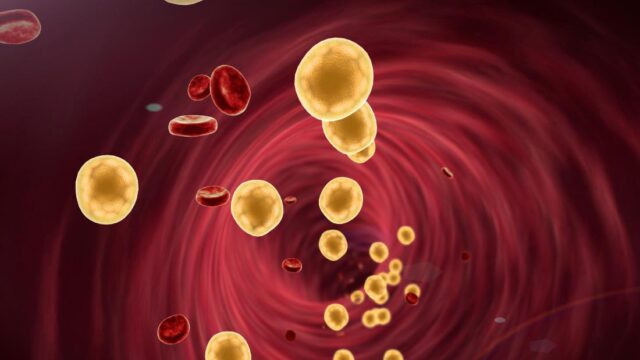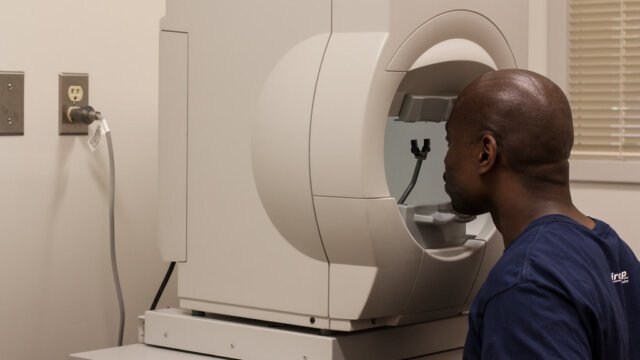FTC disclaimer: This post may contains affiliate links and we will be compensated if you click on a link and make a purchase.
Omega-3 fatty acids have been proven to benefit general health in several ways. One such way is the impact fish oil has on cholesterol.
The omega-3 fatty acids have been proven to profoundly impact cholesterol through scientific study and medical research, showing a direct link between fish oil and cholesterol.
According to the AHA, the American Heart Association, scientific clinical trials have proven that omega-3 essential fatty acids from various natural food sources effectively reduce the risk of cardiovascular diseases or CVD.
Fish oil can reduce the risk of certain heart conditions, including heart arrhythmias and heart diseases.
It has been shown to lower the LDL (Low-density lipoprotein) cholesterol, which is the unhealthy cholesterol in the body while increasing the HDL levels (High-density lipoprotein), which is the healthy cholesterol in the body.
What Is Cholesterol?
Cholesterol is a fat-like, waxy substance found in all cells of your body.
Your body requires cholesterol to make hormones, vitamin D, and substances that help you digest foods.
Although your body makes sufficient cholesterol it needs, we take in additional cholesterol in our food. That’s where the problems come in.
Cholesterol is carried in the blood by combined molecules called lipoproteins, consisting of a lipid (fat) and a protein on the outside.
The two main types of lipoprotein are:
LDL (low-density lipoprotein)
These days, LDL is commonly referred to, even by physicians, as “bad cholesterol.” The function of LDL is to carry cholesterol from the liver to cells.
If too much for the cells to use is carried, there can be a harmful buildup of LDL, leading to severe problems.
HDL (high-density lipoprotein)
This is what we call “good cholesterol.” HDL does the opposite of LDL – HDL carries the cholesterol away from the body cells and moves back to the liver, where it is either broken down or expelled from the body as waste.
What are the functions of cholesterol?
Cholesterol is necessary because it is involved in these processes:
- Building and maintaining the outer layer of cell membranes.
- Determining which molecules can cross into the cell and which cannot (cell membrane permeability).
- Support production of sex hormones (androgens and estrogens)
- Assist in the production of hormones released by the adrenal glands (cortisol, corticosterone, aldosterone, and others)
- Helps in the production of bile
- It helps in converting sunlight to vitamin D
- Metabolism and absorption of fat-soluble vitamins, including vitamins A, D, E, and K
- Insulating nerve fibers
What Causes High Cholesterol?
Some of the important factors that can lead to high cholesterol are:
- Excess weight — Being overweight is directly linked to increased cholesterol.
- Heredity — Unfortunately, a family history of heart cholesterol problems puts you at a higher risk of having high cholesterol.
- Diet — Foods (such as processed food and fast food) that can increase your cholesterol are those that are high in cholesterol, saturated fat, and trans fat.
- Age — The risk of high cholesterol increases as you get older.
What Problems Result From High Cholesterol?
High blood cholesterol (Hypercholesterolemia or Hyperlipidemia) is a condition in which you have too much cholesterol in your blood.
Here’s the alarming part: By itself, the condition usually has no signs or symptoms as per research studies.
Thus, many people don’t know when their cholesterol levels are too high.
And that’s a huge problem because people who have high blood cholesterol have a greater chance of getting coronary heart disease.
You have to remember that the higher your LDL, the GREATER your chance of getting heart disease.
On the other hand, the higher your HDL, the LOWER your risk of getting heart disease.
Moreover, Coronary heart disease is a health condition in which plaque builds up inside the coronary (heart) arteries. Over time, plaque develops in your coronary arteries and hardens and narrows your arteries.
According to studies, plaque limits the flow of oxygen-rich blood to your heart muscle.
If the flow of oxygen-rich blood to a section of the heart muscle is blocked or reduced, angina (type of chest pain) or a heart attack may occur.
Angina is a type of chest pain or discomfort because of reduced blood flow to the heart. It may feel like pressure, squeezing, heaviness and tightness in your chest.
The pain can also extend to your arms, shoulders, neck, jaw, or back. Angina pain may even feel like indigestion.
A heart attack (myocardial infarction) occurs if the flow of oxygen-rich blood to a section of heart muscle suddenly becomes blocked.
Plaque also can build up or narrow your arteries in other parts of your body, such as the arteries that carry blood to your brain and limbs. As a result, it can lead to problems such as carotid artery disease, stroke, and peripheral arterial disease (P.A.D.).
When Is Your Cholesterol Too High?
How do you know if your cholesterol is too high?
A simple blood test. A “lipid panel” will tell you your LDL, HDL, and triglyceride levels.
Your blood test lab results will come in the form of a set of numbers known as the reference range. Here is how to interpret your cholesterol reference range:
LDL Cholesterol
- Less than 100 – Optimal
- 100 – 129 – Near optimal/above optimal
- 130 – 159 – Borderline high
- 160 – 189 – High
- 190 and above – Very high
If you are suffering from cardiovascular diseases such as heart disease or blood vessel disease, health experts recommend LDL cholesterol level should be less than 70.
For patients with diabetes or other multiple risk factors for heart disease, experts recommend lowering your LDL level to less than 100.
HDL Cholesterol
- 60 and above – High (Optimal)
- Less than 40 in men and less than 50 in women – Low (a risk factor for heart disease)
Triglycerides
- Less than 150 – Normal
- 150 – 199 – Borderline high
- 200 – 499 – High
- 500 or higher – Very high
Total Cholesterol
- Less than 200 – Desirable
- 200 – 239 – Borderline High
- 240 and above – High
Does Fish Oil With Omega 3 Reduce Cholesterol?
Studies on this subject are not clear and definitive.
Omega 3 fatty acids have proven to prevent the accumulation of triglycerides.
However, the studies that have been done chiefly show that Omega 3 increases HDL good cholesterol somewhat and lowers triglycerides significantly.
Reducing the body’s excess triglycerides will minimize the risk of diabetes and other heart-related conditions.
People who suffer from certain types of diabetes are more prone to heart problems and cholesterol issues.
The link between fish oil and cholesterol health is essential, as lowering and regulating one’s cholesterol can help reduce the incidence of experiencing heart disease.
Bad cholesterol is capable of harming general health and your heart health.
So regulating cholesterol with the help of the omega-3 essential fatty acids found in fish can be vitally important for good heart health and overall general health.
Lifestyle changes along with Omega-3
Based on various research, it is clear that you cannot depend wholly on fish oil to lower your cholesterol levels.
You need to make other changes for proper cholesterol treatments or include therapies with Omega-3 fatty acids.
The most effective changes include lifestyle changes such as doing more aerobic exercise, losing weight, and eating less processed food and fast food.
Omega-3 is effective in Heart Health.
However, taking fish oil with Omega 3 to combat high triglycerides is very effective, as per studies.
Omega-3 effectively lowered blood pressure somewhat, as per various research studies.
For people who have had heart attacks, Omega-3 lowers the risk of death or stroke and reduces the risk of abnormal heart rhythms. It prevents and treats atherosclerosis (hardening of the arteries).
Based on the connection between fish oil and cholesterol health and regulation, the American Heart Association recommends that individuals at risk of developing cholesterol and heart health issues strive to add essential fatty acids to their diet.
The heart health benefits of Omega 3 are so clear that the American Heart Association is on record saying this: “Omega 3 fatty acids benefit the heart of healthy people, and those at high risk of – or who have – cardiovascular disease.”
Omega-3 Supplement and Food Sources for Cholesterol
High-quality omega-3 supplements or the consumption of certain fish species, including mackerel, anchovies, salmon, tuna, and Hoki, can help reduce cholesterol levels.
The American Heart Association recommends consuming these fish varieties at least twice per week to take full advantage of the health benefits that their essential fatty acids provide to heart health and cholesterol regulation.
Fish oil and Cholesterol studies have shown that a high-quality fish oil supplement high in omega-3 fatty acids can effectively boost healthy cholesterol levels.
Also, fish oil supplements protect you from the possible dangers of heavy metal contamination.
Because fish oil and cholesterol are so strongly linked, it’s important to be aware of this natural treatment.

![5 Quick Natural Ways to Fight Cold and Flu [Natural Remedies]](https://healthyious.com/wp-content/uploads/2019/11/5-Quick-Natural-Ways-to-Fight-Cold-and-Flu-Natural-Remedies-640x360.jpg)






